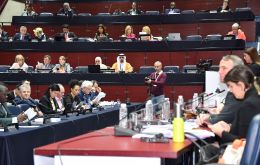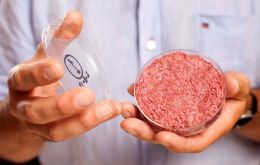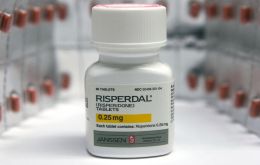MercoPress. South Atlantic News Agency
Health & Science
-
Saturday, October 19th 2019 - 08:57 UTC
Two NASA astronauts make history as they complete the first spacewalk by an all-women team

A giant leap for womankind! Two NASA astronauts made space history on Friday as they completed the first-ever spacewalk by an all-woman team. The historic extravehicular activity (EVA) officially began once both astronauts switched to battery power in their spacesuits, was guided by veteran NASA astronaut and capsule communicator (CAPCOM) Stephanie Wilson on the ground and fellow astronauts Luca Parmitano and Andrew Morgan located on the International Space Station.
-
Thursday, October 17th 2019 - 09:05 UTC
Universal Health Coverage passes key global milestone

The World Health Organization welcomed a new Inter-Parliamentary Union (IPU) Resolution on achieving Universal Health Coverage (UHC) by 2030. The resolution, adopted at the IPU Assembly in Belgrade, Serbia, comes one month after heads of state agreed on a high-level United Nations Political Declaration on UHC in New York.
-
Wednesday, October 16th 2019 - 08:41 UTC
First China built icebreaker begins its maiden voyage to Antarctica

China's first domestically built polar icebreaker Xuelong 2, or Snow Dragon 2, will start its maiden voyage to the Antarctic from the southern Chinese city of Shenzhen this week.
-
Tuesday, October 15th 2019 - 09:12 UTC
A third of the world's 700 million children under five are undernourished or overweight, UNICEF report

A third of the world's nearly 700 million children under five years old are undernourished or overweight and face lifelong health problems as a consequence, according to a grim UN assessment of childhood nutrition released on Tuesday.
-
Saturday, October 12th 2019 - 09:04 UTC
Measles and “immunization gap” causing an alarming upsurge of the disease

Measles is staging a devastating comeback in epidemics across the world as the virus exploits dangerous gaps in vaccination coverage, World Health Organization (WHO) experts said.
-
Friday, October 11th 2019 - 09:44 UTC
Cosmo-burgers: Artificial meat made by Russian astronaut in the Space Station

Creating meat from cells is no longer the realm of science fiction: A Russian cosmonaut did it aboard the International Space Station, and it is just a matter of time before these products arrive in supermarkets. Tests carried out in space in September led to the production of beef, rabbit and fish tissue using a 3D printer.
-
Thursday, October 10th 2019 - 09:43 UTC
Nobel Physics Prize for a Canadian cosmologist and two Swiss astronomers

Canadian-American cosmologist James Peebles and Swiss astronomers Michel Mayor and Didier Queloz won the Nobel Physics Prize for research increasing our understanding of our place in the universe, the jury said.
-
Thursday, October 10th 2019 - 09:40 UTC
Lithium-ion battery developers win the Nobel Chemistry Prize

Three researchers won the Nobel Chemistry Prize on Wednesday for the development of lithium-ion batteries, paving the way for smart-phones and a fossil fuel-free society. John Goodenough of the United States - at 97 the oldest person to be awarded a Nobel prize - Britain's Stanley Whittingham, and Japan's Akira Yoshino will share the nine million Swedish kronor (about US$914,000 or €833,000) prize equally, the Royal Swedish Academy of Sciences said.
-
Thursday, October 10th 2019 - 08:46 UTC
Brazil will reopen its Antarctica base Comandante Ferraz next January

The Brazilian Navy will inaugurate its new 4,500 m² Comandante Ferraz Antarctic Station (EACF) in January 2020, the head of the Navy Programs Management Directorate (DGePM), Vice Admiral Petronio Augusto Siqueira de Aguiar, said earlier this month.
-
Wednesday, October 9th 2019 - 09:15 UTC
Johnson & Johnson must pay US$ 8 billion punitive damages for Risperdal drug

Johnson & Johnson must pay US$8 billion in punitive damages to a man who previously won US$680,000 over his claims that it failed to warn that young men using its antipsychotic drug Risperdal could grow breasts, a Philadelphia jury said on Tuesday.